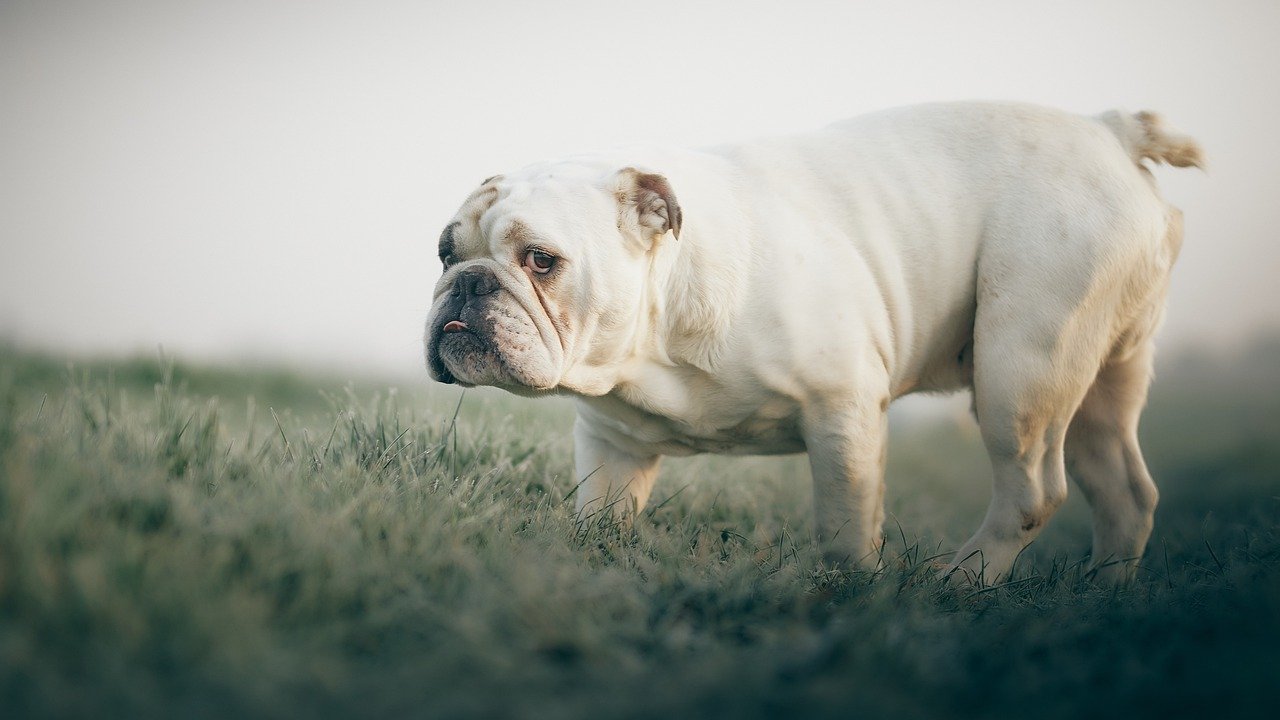Why Do Bulldogs Die So Young?
Do you ever wonder why bulldogs die so young? It’s a sad truth that these beloved pets have shorter lifespans than other breeds. The answer lies in the breed’s physical traits.
It’s an unfortunate reality that many people don’t realize until it’s too late. But understanding why bulldogs die so young can help us take better care of them and extend their lives.
Did you know bulldogs come with special health concerns? This post explores why they die so young and how to keep them healthy. We’ll look at their physical traits, how diet and exercise affect lifespan, and the best way to keep your bulldog healthy throughout its life.
If you want to learn more about the health of bulldogs or are considering getting one, this post is for you! Read on to find out why bulldogs die so young—and how we can help them live longer!
What is the Average Lifespan of a Bulldog?
Contents
- 1 What is the Average Lifespan of a Bulldog?
- 2 Why Do Bulldogs Die So Young?
- 3 How to Help Your Bulldog Live Longer
- 4 Diet and Nutrition for Bulldogs
- 5 Exercise and Activity for Bulldogs
- 6 Vaccination and Preventative Care for Bulldogs
- 7 Genetics and Breeding Practices for Bulldogs
- 8 Signs That Your Bulldog May Be Sick or Dying
- 9 Conclusion
Are you looking for a long-term companion? If so, a bulldog may be the perfect pet for you! On average, bulldogs have a lifespan of 8–12 years, but with proper care and attention, they can live even longer.
Bulldogs are known for their short noses and other physical characteristics that can make them prone to certain health issues. These include joint problems, breathing difficulties, allergies, and skin conditions. Bulldogs can also be at risk of obesity if they don’t get enough exercise or eat a balanced diet.
However, with regular veterinary checkups and preventive care, you can help ensure that your Bulldog lives a long and healthy life. Taking care of your bulldog’s health is essential for giving them the best chance at a long life.
So if you’re looking for a furry friend who will be part of your family for years to come, then consider getting a bulldog.
Why Do Bulldogs Die So Young?
Congenital Abnormalities
French bulldogs are predisposed to a variety of congenital abnormalities, which can lead to premature death.
These abnormalities include heart defects, respiratory issues, and joint problems. French bulldogs are also prone to brachycephalic airway syndrome, which is a condition that affects the upper respiratory tract and can cause difficulty breathing.
Additionally, they are prone to hip dysplasia, which is a condition that causes the hip joint to become unstable and can lead to pain and lameness.
All of these conditions can lead to premature death if not treated properly.
Obesity
Obesity is one of the most common causes of premature death in French bulldogs. This is because they tend to overeat and gain weight quickly.
Obesity can put extra strain on their already delicate bodies, leading to joint problems and other health issues.
Additionally, obesity can make it difficult for them to breathe properly, which can lead to respiratory issues and even death.
It is important to keep your French bulldog at a healthy weight to prevent obesity-related issues from occurring.
Heatstroke
Heatstroke is another common cause of premature death in French bulldogs.
This is because they have short muzzles, which makes it difficult for them to cool down in hot weather.
Additionally, they are prone to overheating due to their thick coats and heavy bodies.
If a French bulldog becomes too hot, it can lead to heatstroke, which can be fatal if not treated quickly.
It is important to keep your French bulldog cool in hot weather to prevent heatstroke from occurring.
Inadequate Exercise
Inadequate exercise is another common cause of premature death in French bulldogs. This is because they are prone to becoming overweight if not given enough exercise.
Additionally, a lack of exercise can lead to joint problems and other health issues that can be fatal if not treated properly.
It is important to give your French bulldog regular exercise to keep them healthy and prevent any health issues from occurring.
Poor Diet
Poor diet is another common cause of premature death in French bulldogs. This is because they are prone to digestive issues if not given the right type of food.
Additionally, poor nutrition can lead to obesity, which can put extra strain on their already delicate bodies and lead to health issues that can be fatal if not treated properly.
It is important to feed your French bulldog a balanced diet to keep them healthy and prevent any health issues from occurring.
Genetic Defects
Genetic defects are another common cause of premature death in French bulldogs.
This is because some breeds are prone to certain genetic defects that can lead to serious health problems if not treated properly.
Additionally, some genetic defects may not be apparent until later in life, making it difficult for owners to detect them until it’s too late.
Owners of French bulldogs need to be aware of any potential genetic defects so that they can take steps to prevent them from causing any health issues or premature death.
Lack Of Veterinary Care
Lack of veterinary care is another common cause of premature death in French bulldogs. This is because they require regular checkups and vaccinations to stay healthy and prevent any health issues from occurring.
Additionally, a lack of veterinary care can make it difficult for owners to detect any underlying health problems until it’s too late.
Owners of French bulldogs need to provide regular veterinary care to keep their pets healthy and prevent any health issues from occurring.
Accidents
Accidents are another common cause of premature death in French bulldogs.
This is because they are prone to getting into dangerous situations due to their curious nature and lack of awareness about potential hazards around them.
Additionally, accidents such as choking or getting hit by a car can happen quickly and without warning, making it difficult for owners or veterinarians to intervene before it’s too late.
Owners of French bulldogs need to be aware of potential hazards around their pets to prevent any accidents from occurring that could lead to premature death or injury.
How to Help Your Bulldog Live Longer
Want your bulldog to live a long and healthy life? Follow these tips to help them stay fit and happy!
Start by providing a balanced diet. Include whole grains, lean proteins, fruits, and vegetables in your bulldog’s meals. This will help them stay healthy and fit.
Next, exercise regularly. Take your bulldog for walks, runs, or even swimming. This will keep them active and help them maintain their ideal weight.
Then, vaccinate regularly. Vaccines are essential for protecting your bulldog from diseases. Make sure to visit the vet for regular checkups to ensure they’re up-to-date on their shots.
Also, groom regularly. Grooming helps keep their coat and skin clean and healthy. It also prevents mats from forming, which can cause skin irritation or infection.
Finally, avoid overfeeding your bulldog. Overfeeding can lead to obesity, which can bring on other health issues like diabetes or joint problems. Feeding your bulldog the right amount of food will help them stay fit and healthy for longer.
Diet and Nutrition for Bulldogs
Bulldogs are a beloved breed, and proper diet and nutrition are essential for keeping them healthy and happy. Feed your bulldog two to three meals per day on a consistent schedule, and always provide fresh water.
Choose a high-quality diet tailored specifically for bulldogs that is rich in proteins, healthy fats, vitamins, minerals, and other essential nutrients. Avoid processed foods and high-grain diets, as these can cause weight gain and digestive issues.
Monitor your bulldog’s weight regularly to make sure they are not overweight or underweight and consider supplements if needed.
Exercise and Activity for Bulldogs
Bulldogs are lovable, loyal companions who need regular exercise and activity to stay healthy and happy. Exercise helps keep a bulldog’s weight in check, which reduces the risk of health problems as well as promoting good mental health and reducing stress levels.
Different types of exercise should be tailored to the individual bulldog’s age, size, and energy level.
Walks are a great way for bulldogs to get exercise and explore their environment. Swimming is another great option, as it is low-impact yet still provides an effective workout.
Playing games such as fetch or tug of war can also be fun activities that provide physical activity for bulldogs.
For more active bulldogs, owners can consider enrolling their pets in agility classes or other activities that provide mental stimulation as well as physical activity. This type of exercise is not only great for your pup’s physical health but also gives them a chance to learn new skills.
Vaccination and Preventative Care for Bulldogs
Keeping your pup healthy and happy is important, and vaccination and preventative care are key. Vaccines protect Bulldogs against distemper, parvovirus, and rabies. Talk to your vet about setting up a vaccination schedule to make sure your Bulldog is always protected.
Regular checkups with your vet are also essential for preventative care. These checkups can help identify any potential health problems early on and allow for prompt treatment.
Dental care is also important for Bulldogs; brushing their teeth regularly and getting regular dental cleanings will help keep their teeth healthy and strong.
Parasite prevention is another important part of preventative care for bulldogs. Fleas, ticks, and other parasites can cause skin irritation and even serious illnesses if left untreated. Consult your veterinarian about the best way to keep parasites at bay in your bulldog.
Genetics and Breeding Practices for Bulldogs
Bulldogs are a beloved breed of dog, but they can be prone to certain genetic disorders and diseases. To ensure healthy puppies, breeders need to practice responsible breeding techniques.
Common genetic issues for bulldogs include hip dysplasia, heart defects, respiratory problems, and eye conditions. Responsible breeders will screen their dogs for these health issues before breeding and avoid inbreeding, as this can lead to a decrease in the lifespan of the dog.
When looking for a breeder, do your research. Ask questions about their practices and make sure they are taking the necessary steps to ensure healthy puppies. By following these guidelines and researching carefully, you can help ensure that your Bulldog is healthy and happy for years to come!
Signs That Your Bulldog May Be Sick or Dying
It’s important to be aware of the signs that your pup may be sick or dying.
Common signs include loss of appetite, lethargy, difficulty breathing, coughing or wheezing, vomiting or diarrhea, excessive panting, and changes in behavior.
Other signs to watch out for include weight loss or gain, difficulty moving around or walking, and increased drinking or urinating.
If you notice any of these signs in your Bulldog, it is important to contact your vet right away for a proper diagnosis and treatment plan.
Loss of appetite and lethargy can indicate an underlying health problem, while difficulty breathing or coughing could mean that your pup is having trouble getting enough oxygen.
Vomiting or diarrhea can also be a sign of sickness and should not be ignored. Excessive panting could mean that they are in pain or feeling unwell.
Weight loss or gain can also point to potential health issues.
Changes in behavior such as aggression or depression could also indicate that something is wrong with your pup’s health.
Difficulty moving around or walking could mean they are in pain and need medical attention. If you notice an increase in drinking and urinating from your pup recently, this could mean they are unwell and need to see the vet.
It is important to take any sign of illness seriously when it comes to your Bulldog’s health and well-being.
Also Read: Home Remedies For Your Bulldog’s Congestion?
Conclusion
In conclusion, bulldogs are a beloved breed of dog, but they come with special health concerns that can lead to a shorter lifespan.
To help extend the life of your Bulldog, provide them with a balanced diet, exercise regularly, groom regularly, vaccinate regularly, and avoid overfeeding.
Additionally, practice responsible breeding techniques to ensure healthy puppies.
Be aware of any signs that your Bulldog may be sick or dying, and contact the vet immediately if you notice any changes in your pup’s behavior or health.




